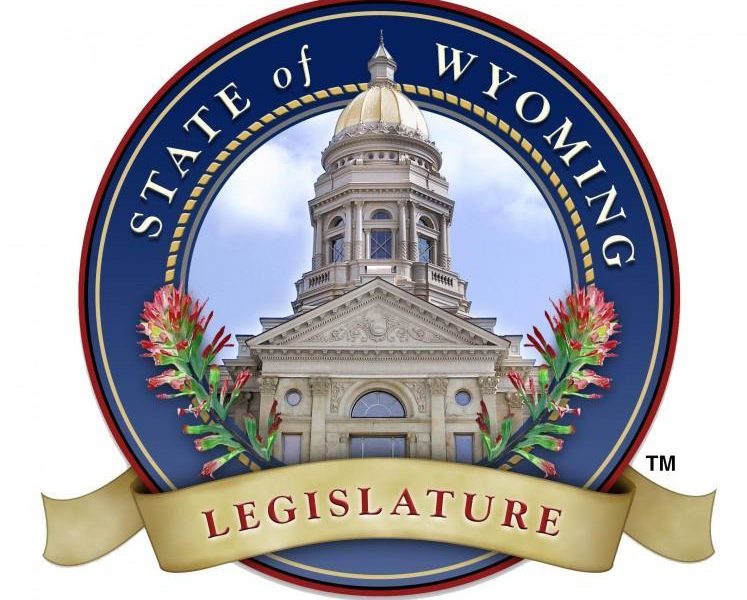By Nick Reynolds, WyoFile.com
CHEYENNE – Dead bills are a fact of life in the Wyoming Legislature.
According to years of data on the Legislature’s voting records, roughly one quarter of committee-sponsored bills and nearly two-thirds of individual-sponsored bills die each session. Many never even receive a hearing.
The 2021 Legislative session has been no different. According to a WyoFile analysis of this year’s voting records, the Wyoming House of Representatives allowed 155 out of 280 pieces of legislation (55%) to die without a hearing prior to this week’s crossover deadline — the day when bills must be voted out of their chamber of origin or perish — while voting to defeat 14 more of those bills on the floor.
In contrast, the Senate killed just 38 of its 161 bills (23.6%) without a hearing, while an additional 19 were voted down after floor debate.
Some of those bills were contentious or “not ready for prime time,” as lawmakers say of unvetted bills, while others were popular with members of the public, lobbyists and even lawmakers. Here are a few of the notable casualties.
Many journalists were disappointed in the March 19 defeat of House Bill 103 – Journalists-privileged communications by a 3-2 vote in the Senate Judiciary Committee after it passed the House of Representatives earlier in the month.
Commonly known as a “shield law,” the bill would have prevented journalists from being subpoenaed for their anonymous sources, offering a level of protection for whistleblowers.
Though an individual’s claim to the privilege would need to be supported in a court of law, both the House of Representatives and the Senate wrestled with concerns over who was qualified to be a “journalist” or what was considered legitimate “news.” That led Senate Judiciary Committee members to raise concerns about the potential for bad actors to abuse the privilege under the law.
“I don’t see a definition of journalist in here,” Sen. Ed Cooper (R-Ten Sleep), a Senate Judiciary member, said in the March 19 hearing on the bill. “I don’t see a definition of news. And I think these are critical to what we’re trying to do here to protect the legitimate journalists out there. There are too many groups out there floating around that could claim that, that put perceptions out there that are incorrect.”
Though the Wyoming Legislature has advanced several abortion-related bills this session, some of the most controversial pieces of anti-abortion legislation failed to gain momentum.
House Bill 70 – Abortion-informed consent, which would require abortion providers to provide certain information to prospective patients about the procedure, failed to meet a key procedural deadline this week alongside House Bill 134 – Human heartbeat protection act, which critics considered an unconstitutional restriction on abortions.
The most restrictive abortion bill on the docket – Rep. Chip Neiman’s (R-Hulett) House Bill 235 – Human life protection act – was never even assigned to a committee. That bill would have created a de facto ban on all abortions in Wyoming.
Beyond the Senate’s passage of a bill to raise revenues for WYDOT by imposing tolls on Interstate 80 and a handful of fee increases throughout various state agencies, the Wyoming Legislature has largely avoided debate of significant revenue-generating measures this session.
Notable casualties this year that never got a hearing on the floor included:
- House Bill 211 – Property taxes: Would have increased assessments on industrial properties by 1% over the next three years for a statewide property tax increase of about $88 million by 2026, according to a fiscal note.
- House Bill 182 – Personal income tax: A flat 4% income tax on all Wyoming residents. This bill was intended by the sponsor, Rep. Mike Yin (D-Jackson) to “start a conversation” on what a personal income tax would look like for Wyoming. That conversation never took place, however. The estimated fiscal impact was $337 million annually – enough to solve the state’s projected education deficit, per Legislative Service Office projections.
- House Bill 168 – Sales and use tax application: This bill would have introduced a tax on services, similar to numerous other states around the country. Estimated fiscal impact: $108 million.
- House Bill 138 – Tax on unearned income: In a nutshell, this bill would impose a 4% income tax on all “unearned income” (e.g. inheritances, capital gains, property appreciation, etc.) exceeding $200,000. If passed, it would have generated $58.4 million per year.
- House Bill 128 – County option real estate transfer tax: Tailored specifically for Teton County, this bill would have allowed counties to introduce taxes on real estate transactions. Rep. Andi Clifford’s House Bill 262 would have imposed a similar tax statewide.
- House Bill 24 – Transportation computer system funding: Would have raised vehicle registration fees by $5 to help fund a replacement for the state’s nearly 50-year-old record keeping system.
- House Bill 26 – Fuel tax: Intended to raise funds for the Wyoming Department of Transportation, which is facing a critical fiscal shortfall. Would have raised the state’s fuel taxes by 9 cents, generating more than $62 million annually. Its sidekick, House Bill 37 – Road usage charge, also failed to get a hearing after months of work in the interim.
- House Bill 55 – Tobacco Tax: A one cent increase to the price of a single cigarette that would add up to approximately $6.5 million in new revenues every year.
- House Bill 28 – Wind tax exemption repeal: Would have removed an existing tax exemption on wind energy production for revenues of about $800,000 annually. Another bill – House Bill 108 – Wind energy production tax – would have introduced additional taxes on wind energy to the tune of $14.6 million in annual revenues by year three of the program. There was also a solar tax increase outlined in House Bill 94 – solar energy generation-taxation that would have raised less than $200,000 annually that, ultimately, went nowhere.
- House Bill 200 – Sales and use tax exemptions-repeal: While the fiscal impact of this bill was indeterminable, past analyses have shown that repealing the numerous exemptions in the state’s tax code could result in tens of millions of dollars in new revenues each year.
- House Bill 191 – Statewide mill levy: Would have introduced four new property tax mills statewide for roughly $50 million in new education funds from 2023 onward.
The Legislature was also reluctant to cut taxes this year, defeating a number of tax and fee exemptions that include:
- Senate File 134 – Lodging tax-exemption for residents: Undeterminable fiscal impact.
- Senate File 27 – Essential health product dignity act: Would have introduced a tax exemption for a number of essential care products, such as feminine hygiene products or adult diapers. Projected loss of $1.8 million in revenue annually.
- Senate File 149 – Oil and gas-royalty and tax rates: Would have cut severance taxes on oil and gas producers by a certain percentage any time federal mineral royalty rates increased. While the estimated fiscal impact was indeterminable, House Bill 224 – Severance and sales and use taxes would have adjusted tax rates for drillers based on how high or low the per barrel price of oil was, resulting in a multi-million-dollar reduction to the state’s general fund. However, the fiscal note also projected a sizeable increase to the state’s budget reserve account through a new sales tax increase written into the bill, which would only take place under certain price conditions.
- House Bill 111 – Oil and gas production tax exemption would also have produced a more-than-$13-million tax reduction for those companies, but never received a hearing. House Bill 145 – Stripper well tax exemption faced a similar fate.
- House Bill 88 – Data center tax exemption-repeal: Private industry figures in the competitive data-center field lobbied hard to kill this piece of legislation, arguing that removing their current tax break would hamstring Wyoming’s ability to compete in the fast-growing industry. It would have raised more than $16 million in revenues per year.
Lawmakers also declined to give a hearing to Rep. Chuck Gray’s (R-Casper) House Bill 110 – Wyoming business council-promotion of low taxes, which would require the Wyoming Business Council to promote the state’s tax climate in its recruitment efforts.
The COVID-19 pandemic has been front and center in this year’s legislative session. Entering the in-person part of the session early in March, lawmakers had just under a dozen bills on the docket to address various aspects of the public health emergency, including whether the Legislature itself should be given more oversight over the actions of the state health officer.
Ultimately, legislators favored House Speaker Eric Barlow’s (R-Gillette) House Bill 127 – Public health amendments, which limits the duration of unilateral emergency health orders to 10 days.
The Legislature is also still considering Senate File 30 – Pandemic response review task force, which would establish a task force to look at the state’s pandemic response in retrospect and determine best practices for future pandemics. Sen. Troy McKeown’s (R-Gillette) Senate File 80 – Public health orders-local and legislative oversight also remains alive as of this writing.
After House Speaker Barlow said that 2021 was the year to start a conversation about legalized marijuana, the Wyoming House of Representatives committee of the whole dodged the discussion completely, killing both a recreational marijuana bill and a medical marijuana bill without a hearing.






